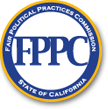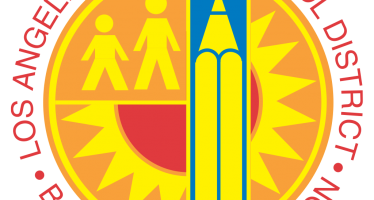Non-profit accused of 'money laundering,' exonerated, but fined

The California Fair Political Practices Commission is announcing today at noon they have reached a settlement in the investigation into the mysterious $11-million donation from an Arizona nonprofit, during the 2012 California general election.
One of the groups accused of the “campaign money laundering,” the Center to Protect Patient Rights, plans to announce today it has resolved its portion of its legal dispute with the FPPC.
The issue was $11 million in Super PAC money contributed to fight the Gov. Jerry Brown's ballot initiative to increase sales and income taxes through Proposition 30, and the ballot initiative which would have weakened the political power of labor unions, Proposition 32.
There was relatively little media interest in the $66 million raised by organized labor to fight passage of Prop. 32, including $20 million from the California Teachers Association.
The $11 million donation made headlines and generated a controversy because of its source — an unknown Phoenix group called Americans for Responsible Leadership.
The Center to Protect Patient Rights, was the other Arizona organization involved in the donation.
FPPC Chairwoman Ann Ravel ordered agency attorneys to demand that Americans for Responsible Leadership disclose the contribution’s original donors, after California Common Cause filed a complaint. When the groups would not, Ravel and Attorney General Kamala Harris opened a formal inquiry into the group’s donation to the Small Business Action Committee.
Settlement
“The California Fair Political Practices Commission has announced that the legal dispute over the filing of CPPR’s reports last year has been completely and finally settled,” said Sean Noble, President of the CPPR in an email.
“CPPR is pleased the Commission determined that the organization never intended to violate campaign reporting rules nor did it intend to conceal information from the public. CPPR ‘inadvertently’ erred largely because it had never previously made any contributions in the State of California,” said Noble.
“CPPR will remain vigilant in its work to encourage and support likeminded groups and individuals, and educate the public on issues related to limited government, free enterprise, and the protection of patient rights.”
The settlement seem large given the group was absolved of intentional wrongdoing.
Center to Protect Patient Rights
The first part of this civil dispute was settled last November when disclosure letters were filed prior to the 2012 election.
CPPR’s filing with the FPPC in 2012 was the organization’s first and only in the State of California, according to a source close to the case. Yet, the filing attracted more than its fair share of scrutiny from those on the left who disagree with CPPR’s mission of working to keep the United States financially and fiscally sound.
Many charged the controversial $11 million contribution came from the despised Koch brothers, who give to conservative causes. The recipient of the donation was Sacramento-based Small Business Action Committee PAC and its No on Proposition 30/Yes on Proposition 32 efforts.
The FPPC made clear in the settlement that CPPR made an “inadvertent” error, but acted in “good faith” and never intended to violate campaign reporting rules.
However, another source who asked for anonymity because the details of the settlement have not been formally announced by the FPPC anticipates closure of this matter will not be enough to satisfy some on the left, and said these individuals and organizations will take every opportunity to try to silence those they disagree with.
The total FPPC settlement is $1 million, to be broken out among the accused groups.
The source said the unprecedented size of the financial settlement over an issue that amounts to an inadvertent filing error is a glaring example of the Commission’s power over non-profit organizations that pursue a constitutionally guaranteed right of free speech in elections.
Government overreach – think IRS scandal
According to my source, the FPPC overreach is similar to the IRS’s disturbing overreach with “conservative” non-profit organizations and Tea Party groups. “Americans should be rightly concerned about any misuse of power by government political ‘watchdogs’ against legitimate non-profit organizations,” the source said.
Related Articles
Erasing “man” and “men,” one state at a time
July 8, 2013 By Katy Grimes The radical feminists are on a roll. They continue to make gains in their
State settles high-profile school lawsuit
The State Board of Education has voted to settle Cruz v. California, a lawsuit alleging extreme mistreatment of mostly minority
Kevin McCarthy talks Senate seat, power, trains
While he was in town, I talked with House Majority Leader Kevin McCarthy, R-Calif., about retiring Sen. Barbara Boxer’s seat,




